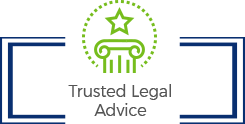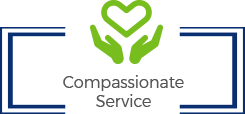As much as we might prefer to leave work at the office, if your job environment is hostile or toxic, chances are it is impacting other areas of your life. Charlotte employment law attorneys at The Noble Law have seen firsthand the physical and mental trauma caused by workplace harassment, discrimination, and other unethical and unlawful behaviors.



We are committed to ensuring that workers across the Carolinas have a safe, fair, and equitable workplace, one case at a time. If you have a pressing legal matter that involves your job, call (704) 626-6648 or book a consultation online with an attorney specializing in employment law today. We will assess your situation to assess your legal options and determine if you have grounds to bring a civil claim against your employer, colleague, or client. A little planning can reap great benefits. Consult a lawyer at The Noble Law during contract negotiations to minimize the risk of unfavorable terms that could lead to conflicts down the line. If a contract dispute has already emerged, either during contract negotiation or at the time of separation, we can fight to make sure your best interests are served.
Overview of Employment Law in North Carolina
Employment law encompasses a wide range of legal matters that impact workers and business owners across all industries and positions. From employment contracts and compensation to civil rights protections, nearly every aspect of your job is governed by local, state, and federal laws.


Key Federal and State Employment Laws
Employers in Charlotte and throughout North Carolina must comply with employment laws that exist to protect workers and provide a safe working environment for everyone. This important and impactful legislation includes:
- Title VII of the Civil Rights Act of 1964 (Title VII): This federal law protects applicants and workers from harassment and discrimination based on race, color, religion, sex, sexual orientation, gender identity, and national origin. It also prohibits retaliation against employees who engage in protected activity under Title VII such as complaining of or opposing discriminatory treatment, participating in an investigation or lawsuit, or filing a charge with the EEOC.
- Pregnancy Discrimination Act (PDA): This law amended Title VII to make clear that it is also unlawful for employers to discriminate against individuals on the basis of pregnancy, childbirth, or medical conditions related to pregnancy or childbirth.
- Pregnant Workers Fairness Act (PWFA): The PWFA was recently enacted and requires covered employers to provide a reasonable accommodation, absent undue hardship, to a qualified worker who experiences limitations connected to pregnancy, childbirth, or related medical conditions. Discrimination or retaliation against individuals who require accommodations due to pregnancy, childbirth, or related conditions is also prohibited.
- Equal Pay Act of 1963 (EPA): The EPA prohibits wage discrimination based on sex.
- Americans with Disabilities Act (ADA): Title I of the ADA makes it illegal for covered private sector employers to discriminate against a qualified person with a disability on the basis of that disability, fail to engage in an interactive process to determine whether a reasonable accommodation exists for the person, or retaliate against that person for exercising their rights under the ADA.
- Sections 501 and 505 of the Rehabilitation Act of 1973 provide the same protections to employees of the federal government, while Section 503 governs qualified employees of certain federal contractors and subcontractors.
- Age Discrimination in Employment Act (ADEA): This federal law prohibits covered employers from discriminating against individuals over the age of 40, or retaliating against workers for engaging in protected activities under the Act.
- National Labor Relations Act (NLRA): This federal law protects private-sector workers who collaboratively advocate for better working conditions, whether they are part of a union or not.
- Family and Medical Leave Act (FMLA): The FMLA requires employers to provide certain amounts of unpaid, job-protected leave to qualifying employees for certain family and medical reasons that constitute serious health conditions.
- Genetic Information Nondiscrimination Act (GINA): This federal law makes it illegal to discriminate against individuals because of genetic information, including genetic tests or medical history of the individual or their family members.
- Fair Labor Standards Act (FLSA): This law regulates workplace practices related to minimum wage, overtime pay, and youth employment standards.
- The North Carolina Wage and Hour Act (NCWHA): Like the federal Fair Labor Standards Act (FLSA), this law establishes payday and recordkeeping requirements, minimum wage, and overtime pay for North Carolina’s workers.
- North Carolina Retaliatory Employment Discrimination Act (REDA): This NC law prohibits employers from retaliating against employees who file workplace safety and health complaints, raise complaints about failure to pay their earned wages, file claims or complaints related to workers compensation, or engage in other legally protected activities.
Discriminatory or retaliatory conduct that results in a North Carolina employee’s termination can also form the basis for a common law claim of wrongful termination in violation of North Carolina’s established public policy. Important public policy can be found in the North Carolina laws outlined above and others such as the North Carolina Equal Employment Practices Act (NCEEPA), which mirrors Title VII’s protections, and the North Carolina Persons With Disability Protections Act (NCPWDPA), which mirrors the ADA’s protections.
If you suspect your employer has violated these or any other laws or protections, schedule a consultation with The Noble Law to discuss your concerns. Even if you don’t choose to work with our team, we are happy to provide resources to help you find a resolution for your legal matter.
Areas of Employment Law
As you can see from the depth and breadth of employment legislation, this area of law is far-reaching. Here are the top practice areas Charlotte employment law attorneys oversee at The Noble Law:
- Workplace harassment and discrimination: Providing legal counsel and representation for individuals experiencing unwanted, offensive conduct based on any of the protected categories (race, color, sex, etc.).
- Pay, overtime, and leave: Counseling clients on their right to compensation for every hour they work, fighting for victims of wage theft through missing overtime, underpayment, or misclassifying exempt and non-exempt workers.
- Retaliation and whistleblower claims: Protecting workers who speak out against illegal activities like fraud and corruption and are terminated, demoted, or encounter other forms of retaliation.
- Wrongful termination: Defending clients who are wrongfully terminated for discriminatory reasons or in retaliation for exercising their legal rights.
- Employee contracts: Reviewing employment contracts before clients start a new job and resolving severance disputes when employment ends.
This is just a brief overview of the many legal services The Noble Law provides for both employees and business owners. Inquire online to learn more or schedule a consultation with a Charlotte employment lawyer at your convenience.


What Do Employment Lawyers Do?
Employment lawyers represent employees who are suing an employer for discrimination, wrongful termination, back pay, and other adverse actions.
Employment laws are complex and often challenging to navigate. Workers may not be fully aware of their rights under the law. Here are some ways an employment lawyer can help:
- Employment lawyers help explain your rights and discuss your options regarding a work dispute.
- They discuss the pros and cons of negotiation, mediation, and litigation and guide the client through every stage of the process.
- Clients also consult employment lawyers to review employment contracts for new positions to ensure the terms are legal, fair, and in their best interests.
It’s important to note: Employees who have a grievance are generally required to file a complaint with the Equal Employment Opportunity Commission, NC Department of Labor, or another federal or state agency within a short time period after they experience workplace issues, and before they can pursue civil action in court. The employment lawyer prepares the agency complaint or charge, gathers the necessary evidence to support the complaint or charge, submits it to the proper agency, and provides guidance and representation throughout the agency’s investigation.
However, it takes an average of 10 months for the EEOC to investigate a Charge, and other agencies may have similar timelines. For a worker dealing with a hostile work environment, that delay can be incredibly stressful and even traumatic. Fortunately, claimants can take legal action after a certain period of time, even while their Charge is being reviewed.
How Can Our Charlotte Employment Law Attorneys Help You
We are passionate about helping workers assert their rights and stop unlawful practices that affect their ability to earn fair compensation in a safe work environment free from harassment, discrimination, and retaliation. Because we focus entirely on legal matters related to employment, we have extensive knowledge of the laws and regulations impacting workers across North Carolina.
Unlike large, impersonal law firms where you might feel more like a case number than a valued client, we take the time and attention to truly understand the challenge you are facing. We consider every legal avenue available to help resolve your case and obtain the compensation you deserve after being wronged by a coworker, employer, or client.
A consultation is the first step. Call (704) 626-6648 or connect online to speak with an employment law attorney in Charlotte today.


